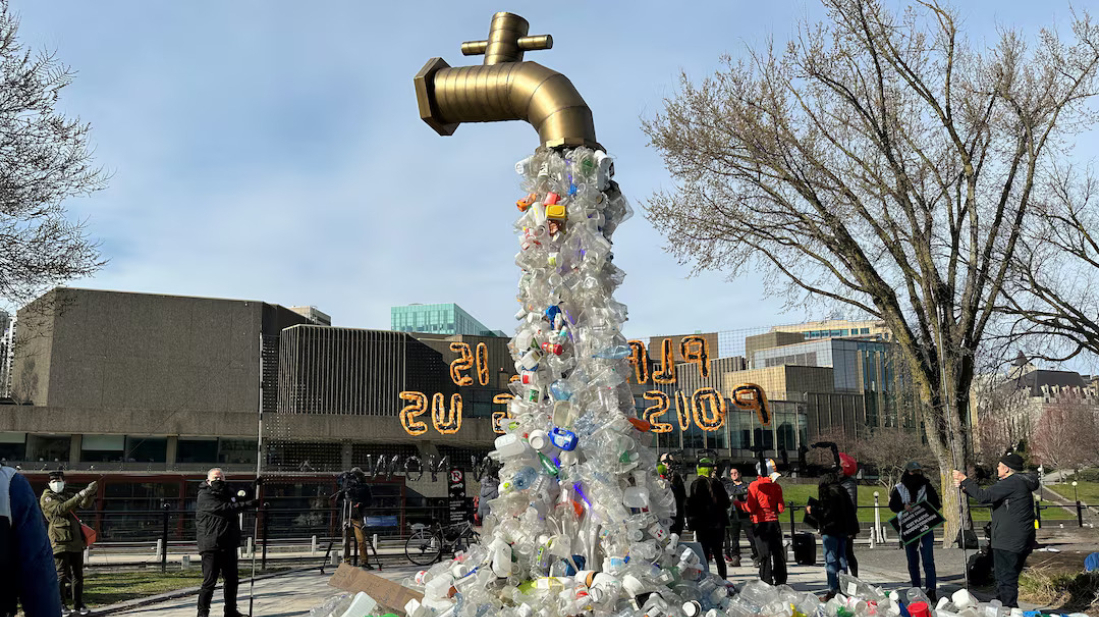On the ground in Tehran as explosions rocked the Iranian capital
As the strikes on Tehran began on Saturday (28 February), Touraj Shiralilou sent us this report from the Iranian capital....

Plastic pollution is causing more than $1.5 trillion in health-related economic damage each year and is linked to illness and death throughout the human lifespan, according to a new review published in 'The Lancet' on Sunday.
Describing the issue as a 'plastics crisis', the authors stress that it is preventable with the right action. They call for science-backed and cost-effective policies, including strict regulation, enforcement, and financial incentives- modelled on past successes in reducing air pollution and lead exposure.
The findings have been released just as global efforts to forge a legally binding plastics treaty resume in Geneva.
The review warns that plastic pollution is a growing and serious threat to both human and environmental health.
It notes that plastic production has surged from 2 million metric tons in 1950 to 475 million tons in 2022, and could reach 1.2 billion tons by 2060.
Around 8 billion tons of plastic waste has accumulated globally, with most of it still polluting ecosystems due to its resistance to degradation. Fewer than 10% of plastics are ever recycled.
The study comes as representatives from more than 170 countries gather for the second phase of the fifth session of the Intergovernmental Negotiating Committee (INC-5.2), which runs from 5 to 14 August in Geneva. The talks are seen as a critical opportunity to push forward a global treaty aimed at curbing plastic pollution.
Tensions between the U.S. and Iran are escalating, with Washington ordering a significant military build-up in the region and multiple countries evacuating diplomatic staff amid fears of further instability.
Israel has launched a pre-emptive missile strike against Iran, the Defence Minister said on Saturday, as the military sounded air raid sirens to prepare the public for possible retaliation.
The situation in Cuba was heating up and called for restraint following a deadly incident involving a Florida-registered speedboat off the coast of the Caribbean island, the Kremlin said on Thursday (26 February).
Russian President Vladimir Putin’s special envoy, Kirill Dmitriev, arrived in Geneva and may hold talks with U.S. officials, according to the RIA news agency.
Ankara has rejected media reports claiming it plans to deploy military forces into Iranian territory in the event of a U.S. attack on the Islamic republic.
The death toll from heavy rains and flooding in Brazil’s Minas Gerais state has risen to 46, authorities said, with 21 people still reported missing. The storms triggered landslides and widespread flooding, displacing thousands across Juiz de Fora and Uba.
The administration of U.S. President Donald Trump on Thursday (12 February) announced the repeal of a scientific finding that greenhouse gas emissions endanger human health, and eliminated federal tailpipe emissions standards for cars and trucks.
Tropical Cyclone Gezani has killed at least 31 people and left four others missing after tearing through eastern Madagascar, the government said on Wednesday, with the island nation’s second-largest city bearing the brunt of the destruction.
Rivers and reservoirs across Spain and Portugal were on the verge of overflowing on Wednesday as a new weather front pounded the Iberian peninsula, compounding damage from last week's Storm Kristin.
Morocco has evacuated more than 100,000 people from four provinces after heavy rainfall triggered flash floods across several northern regions, the Interior Ministry said on Wednesday.
You can download the AnewZ application from Play Store and the App Store.

What is your opinion on this topic?
Leave the first comment